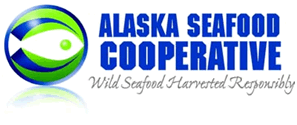SEAFOOD.COM NEWS [Alaska Journal of Commerce], March 5, 2013
By Molly Dischner
At the N. Pacific Council meetings that concluded last week, one item considered was providing more flexibility in the Bering Sea flatfish harvest.
Under the analysis the staff has been asked to look at, the council could allow Amendment 80 vessels and Community Development Quota, or CDQ, entities to change out quota for one of three flatfish species and instead get surplues quota for another species.
The species that will be available are flathead sole, rock sole and yellowfin sole.
The council added an additional alternative to that analysis, which would create a harvest limit for the three species, and entities could exchange quota share for a portion of the harvest limit surplus. For that alternative, certain options will also be analyzed including limiting the exchanges to three per year, allocating only flathead and rock sole, but allowing yellowfin to be exchanged, and capping the amount of extra yellowfin sole.
The change is being considered as a way to help harvesters adjust to various ocean conditions — like sea ice — that may prevent them from harvesting their full allocation of a species, and to address the sector’s underutilized quota share.
The analysis will also look at possible issues with the CDQ entities participation, as their allocations are set through a different process, and some legal complications could be involved.
Alaska Seafood Cooperative Manager Jason Anderson said record ice last year made it impossible for many vessels in the cooperative to move from rock sole to yellowfin.
“Vessels were left with a decision to stop fishing, and we had several vessels that just tied up,” Anderson said.
Anderson said that the sector has worked on addressing issues on its own when possible, but needed council help to harvest maximum sustained yield.
Others in the industry, including At-sea Processors Association’s Stephanie Madsen, also testified in support of moving forward with the action.
John Warrenchuck, an ocean scientist at Oceana, asked the council to consider bycatch reduction as part of the flexibility package.
The sector has not hit the PSC caps every year, he noted, so there is likely room for the reduction, he said.
The flatfish issue is slated to come back before the council at its April meeting, in Anchorage.
